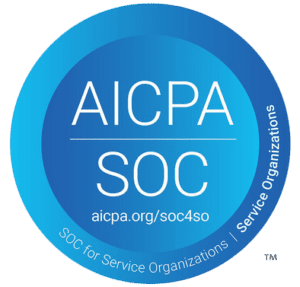In today’s competitive market, trust is the cornerstone of any productive advisor/client relationship. In order for advisors to foster long-term, successful relationships, they must have sound business practices and excellent communication strategies that build trust.
However, research indicates that many advisors are doing a lackluster job of inspiring trust within their client relationships. According to some research, overviews alarming research which indicated:
- 33% of clients lacked the confidence that information is presented to them in exactly the same way, regardless of poor or positive investment performance
- 40% of clients felt they did not have access to core information about investment performance
- 35% of clients were not confident the information they receive from their advisor is accurate and dependable
For advisors who may be underestimating the prevalence of transparency issues in their firm, the time has come to address these challenges head-on. Those who do are able to capitalize on an opportunity to stand out to their clients in the market. Modern advisors must understand and act on:
- Today’s client cares as much about their relationship with and perception of their financial advisor as they do about financial performance
- Trust is the most crucial aspect of a strong advisor/client relationship
- Earning and maintaining trust is a critical skill modern advisors must dedicate themselves to
In today’s post, we’ll explore ways that advisors can better leverage technology at their firms to increase transparency and accountability, leading to a greater degree of trust in their client relationships.
Reporting
For any advisor, client review meetings are a pivotal opportunity to showcase their value as an advisor and prove to clients the value they add. However, traditional review processes are dated and often ineffective at making clients feel they’re tuned into performance. The challenge for client reviews is consistency, clarity, and completeness. Many traditional processes fall short in one or more of these areas.
Consistency
In order for reporting to improve the advisor/client relationship, it must be done consistently and on a predictable schedule. One of the biggest mistakes a modern advisor can make is causing their client to guess or be unsure of their current position. Clients don’t want to feel in the dark–they should feel like they are up to speed on their financials at all times.
Ideally, advisors should leverage technology which allows them to get up to speed on client accounts at any time, rather than replying on a quarterly cycle. Additionally, leveraging a platform which automatically delivers timely, personalized client insights on a monthly basis can go a long way in creating predictable consistency within your reporting processes.
Clear
Another challenge area for many advisors is the clarity of their reporting. Information overload, clunky design, and sharing insights/data that aren’t personalized to the client can all lead to confusion from the client. In order to foster transparency and trust within the relationship, advisors should ensure they leverage reporting software that answers client questions and concerns, not creates new ones. This is why at Bridge, we focus on client reporting that builds confidence, not confusion.
Complete
The last key area to mention is completeness. Oftentimes, moments of market volatility are when the thoroughness of client reports becomes the most important. When the market is choppy, an advisor must be able to easily put their clients at ease by getting quality answers to their questions. Ensuring clients have a complete understanding of their current position and if they are on-track to meet future goals, is crucially important.
Overall
At Bridge, we believe client reporting should be centered around time spent with clients, not time wasted on tooling around with complex software. This is why we make our reporting technology so simple to use, advisors can finish client reports in less than 60 seconds. This means less time spent on back-office preparation and more time spent working with clients. Learn more about Reporting with Bridge.
Fees and Billing Practices
Beyond reporting, client billing is a crucially important area of the advisor/client relationship to get right in order to avoid trust breakdowns. Although there has been significant growth of fee-only registered investment advisors, many clients still feel confused or unclear on how exactly their advisor gets paid.
When it comes to building trust, especially with new clients, advisors must spell out in explicit terms how they are being compensated for their work. Additionally, clients must full-heartedly believe that their advisor is working in their best interest. The best advisors don’t shy away from their pricing: clear and upfront fees followed up with transparent, consistent billing practices builds trust and maintains accountability and can become a competitive advantage.
Having sound, compliant, and accurate billing processes is of paramount importance. Even just one billing error or lack of clarity could derail an otherwise healthy advisor/client relationship. Unfortunately, many advisors are still manually entering billing information on a quarterly basis or unable to produce clear invoices for their clients. Not only is this process incredibly time-consuming, it can often also be riddled with potential entry errors and compliance gaps.
Advisors we work with at Bridge are able to turn billing into a competitive advantage, charging 20% less than industry averages while maintaining healthy margins. Our billing tool allows advisors to complete quarterly billing in just minutes, and ensures all clients are clearly and correctly invoiced to avoid any communication breakdowns.
Time Management
When it comes to strengthening client relationships and building trust, proper time management is an important yet often overlooked element to success. Advisors that proactively leverage technology to automate low-value work or repetitive tasks have more time to commit to serving clients, building trust, and growing their business.
It’s important to remember that embracing technology doesn’t replace the advisor’s role, but rather enhances it. Advisors that are leveraging technology to streamline operations are better able to execute on impactful client communications calendars, proactively address client issues as they come, and improve the overall reputation and standing of their firm.
Are you interested in learning more about how technology can help you increase transparency, foster client trust, and build long-lasting relationships at your firm? Schedule a demo of our practice management solution, Atlas, today.


